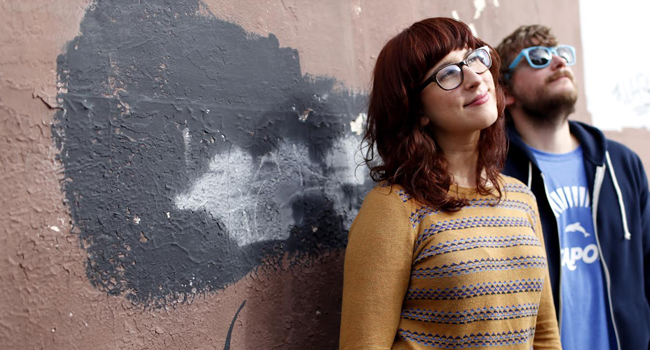Remember the name Willis Earl Beal. In fact, store it somewhere in your subconscious and suspiciously the name will soon emerge from the crevice where it was placed.
At Schubas Tavern as part of Tomorrow Never Knows, Beal, solo artist and Chicago native, revealed that before being picked up by XL Records and given a multi-record contract, he was just a homeless street performer. Last night was his debut live set, at which he humbly sat on a stool and swooned with such fluidity the painstaking lyrics unraveling a story of heroic disgrace.
At the end of his set, Willis stood and thanked the applauding and enamored audience, saying, “I am an aspiring musician.”
The crowd laughs, but he is serious; his dark sunglasses creating a thin shield from the audience.
“I think art is like vomit,” Beal says as he draws eloquently the outline of a woman’s face with a red sharpie. He continues to describe how art is in any form creative—even his own—which in his modesty he denies that he has any skills.
“I don’t know chords. I don’t know notes. I just play what sounds good.”
The process by which Beal recorded his well-over 100 songs was a tedious and crafty endeavor. It would involve a karaoke machine from Radio Shack, and an array of instruments splayed across the floor with a microphone hovering over each one meticulously. He would take the mic, cover it in a plastic bag and put it in a full tub for effect. GarageBand, Pro Tools—any computer program was out of the question for Beal.
His story before getting noticed is one of courage and enigmatic chance.
Willis revealed, “I was fired from my job from at the Sears Tower; prior to that I had gone to the army, where I was honorably discharged. I would have been dishonorably discharged if it weren’t for my medical condition.
“I have a big-ass scar on my stomach to prove it. They had to cut out a majority of my intestines because my intestines had involuntarily twisted themselves and were going gangrene. Between these times I was in the hospital, and once I was out, I became homeless, performing and singing on the street for money. I decided it was time for a change, so I asked around the shelter, working with people to get a job.
“Steadily but surely I got a job and I got an apartment. I began collecting instruments from thrift stores, dumpsters and I put my own stuff together, even though I didn’t know how to play any instruments and I was a novice singer, I felt like I had something to express.
“So I went to Radio Shack, got a karaoke machine and a microphone and recorded over 130 songs in 3-and-a-half years’ time and most of it was pure crap, but 17 songs emerged from that pure crap—the roses that grew out of the concrete, so to speak. My girlfriend and I broke up and her parents paid for me to move back to Chicago. A year later, fired from job to job. Eventually, the (Chicago) Reader noticed me, and eventually so did XL (Record Label). XL is putting out some of my best recordings I made in my apartment. I told them not to. I asked them to please, at least let me try to do the recordings again, but they liked it.”

And at the performance, the audience was just as awestruck. He spoke to every one who approached, giving each person his full attention. He was kind and welcoming, as if he was a child soaking in all the knowledge and inspiration he could, even from the fans who grabbed him tightly and said, “That was brilliant.” Beal was not fazed, for if anyone should truly understand his or her own purpose, He should be able to give some insight—considering he wrote his own biography, “three or four times at least.”
His humility as an artist is unusual. Evasive and yet disarming, whether Willis wanted to be discovered or not, he was (and is) a force to be reckoned with.



